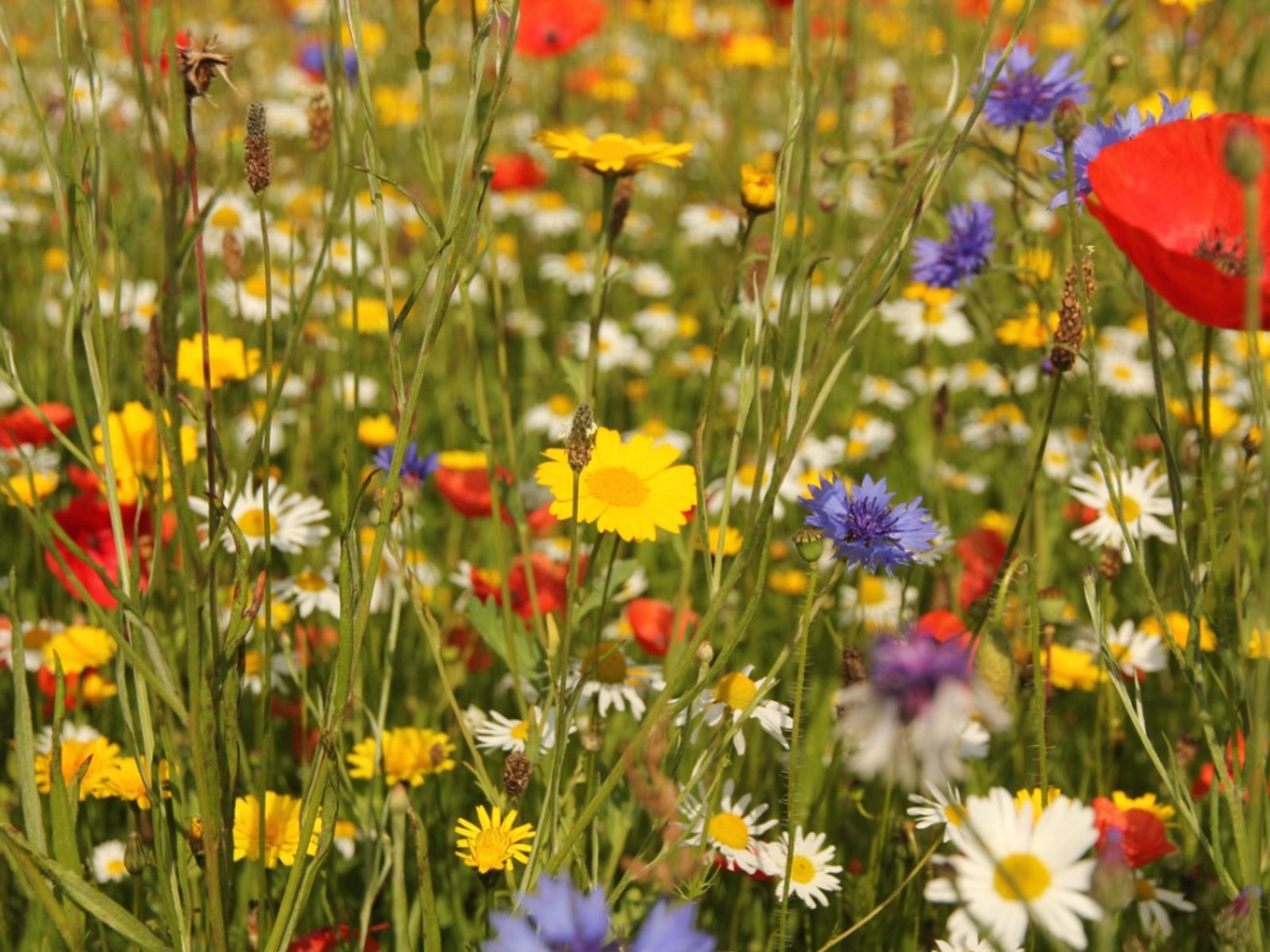A Wildflower Garden In Your Backyard


There are few things in this world, horticultural or otherwise, that can compare with the simple beauty of a wildflower garden. Picture a gently sloping mountain meadow filled with the delicate blossoms of yellow Plains coreopsis (Coreopsis tinctoria), orange California poppies (Eschscholzia californica), and lacey baby's breath (Gypsophila elegans). Butterflies dance across the meadow in front of you as you make your way through the tall grass to a small stream flowing somewhere up ahead. It's like something out of a dream and with minimal effort on your part, it can become a reality. Keep reading to learn more about creating a wildflower garden in your backyard.
Creating Wildflower Gardens
In contrast to the formal English garden or even a traditional vegetable garden, a wildflower garden is truly inexpensive, easy to plant, and simple to maintain. You don't have to spend endless hours weeding your wildflower garden because wildflower gardens are meant to be...well...wild! You also don't need to spend hours watering or fertilizing your wildflower garden because the plants you will choose for your garden will be native species to your particular region of the world. This means that they're most likely already in love with the soil that is natural to your garden, and they don't expect to get much more rain than you would get on average each year. Although for most of the wildflowers in your garden, extra water and fertilizer won't hurt the plants; in most cases, it will keep them blooming longer.
How to Start a Wildflower Garden in Your Backyard
In order to get started with your wildflower garden, the most straightforward option is to buy a large bag of native mixed wildflower seed to spread in your bed or meadow. Simply loosen the soil with a hoe or shovel and remove most of the weeds and grass from the planting site. Spread your seed over the prepared area and rake it in gently. Of course, you will want to follow any other directions on your seed package. Then, water in the seed well, leaving the sprinkler on for 30 minutes should do the trick. Continue watering the seeded area morning and night to ensure that it doesn't dry out completely. Be sure to use a gentle sprinkler with a fine shower so that your precious wildflower seeds don't get jostled around while they're trying to sprout. Once the seeds sprout and your wildflower "toddlers" are on their way to being 3 or 4 inches (8-10 cm.) tall, you may choose to water them only if they become very dry and look wilted. Seriously though, don't worry about weeds. Wildflowers are tough; they're meant to do battle with nature's harshest enemies. Plus, weeds such as grasses and other native species help bring fullness to your wildflower meadow. Of course, if the weeds are offensive to you or threaten to overtake the flowers, a light weeding really can't do any harm. In addition to native wildflowers like purple lupine and white yarrow, you may want to consider other native species for your backyard too. Ferns, shrubs, berry plants (like chokecherry), and other natives would look absolutely divine gracing a different area of your yard. Native ferns planted in the shade of a large group of birch trees would do well, or perhaps a new planting of wild ginger around your evergreen trees is more appropriate to your location. The bounty of native wildflowers and plants is practically endless. Now, just lay back in your wildflower meadow, close your eyes, and relax. Imagine yourself enjoying this wildflower garden for years to come. Oh, didn't I mention? Most wildflowers freely re-seed themselves year after year so you don't have to! Just a smidgen of watering and weeding each year, if absolutely necessary, is all your wildflower masterpiece will ever need.
Gardening tips, videos, info and more delivered right to your inbox!
Sign up for the Gardening Know How newsletter today and receive a free copy of our e-book "How to Grow Delicious Tomatoes".

Arista Hageman is a writer for Gardening Know How who specializes in flower gardening.
-
 Looking For Plants To Give You The Soft And Fuzzies? Try These 5 Fuzzy Leaf Plant Options
Looking For Plants To Give You The Soft And Fuzzies? Try These 5 Fuzzy Leaf Plant OptionsLovers of texture, drama, silver foliage and tactile plants will adore these special sensory garden additions. These fuzzy leaf plant options will leave you all aglow
By Susan Albert
-
 Get Ready For A Summer Of Hummers! Grow These Full Sun Hummingbird Plants and Flowers
Get Ready For A Summer Of Hummers! Grow These Full Sun Hummingbird Plants and FlowersIf you’re lucky enough to enjoy a sunny backyard, make sure you are maxing out on your pollinator opportunities and grow these full sun hummingbird plants and flowers
By Tonya Barnett